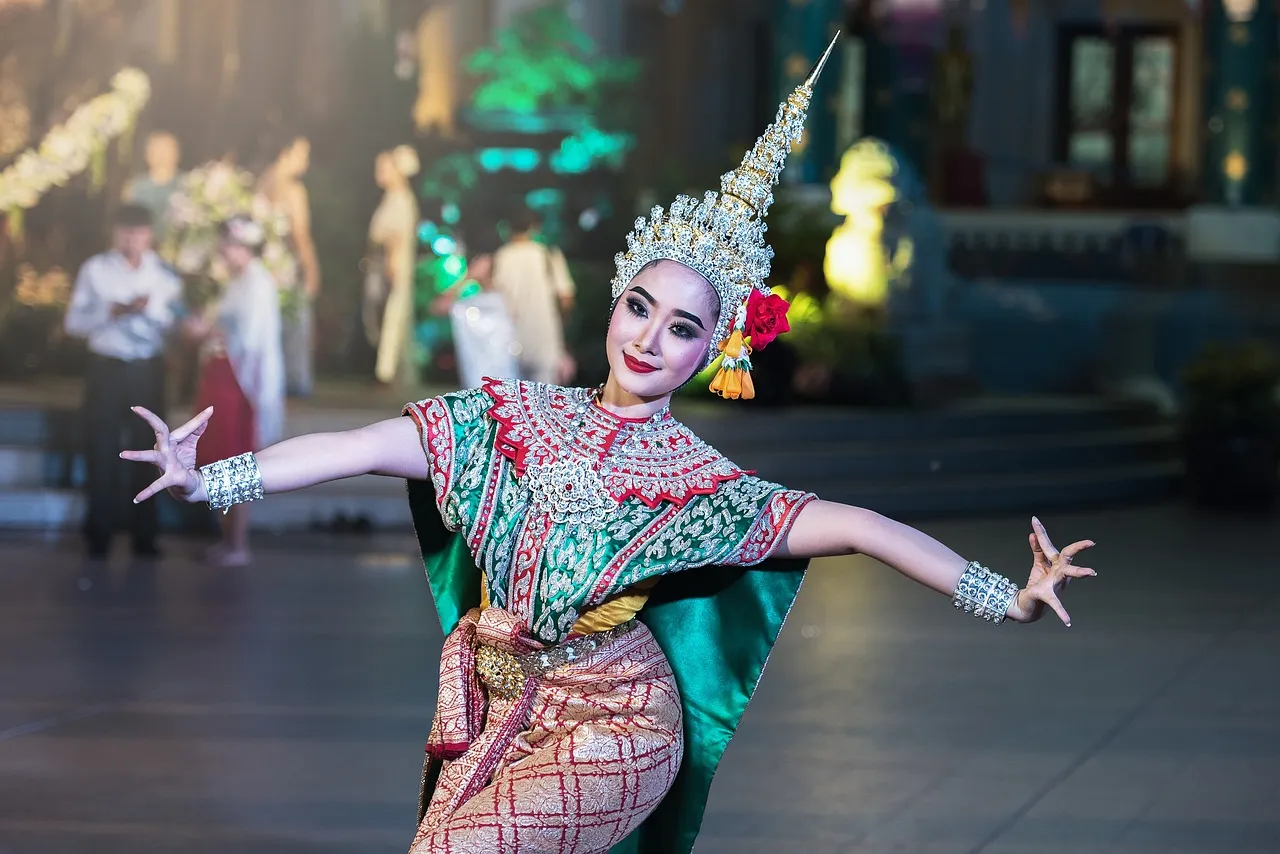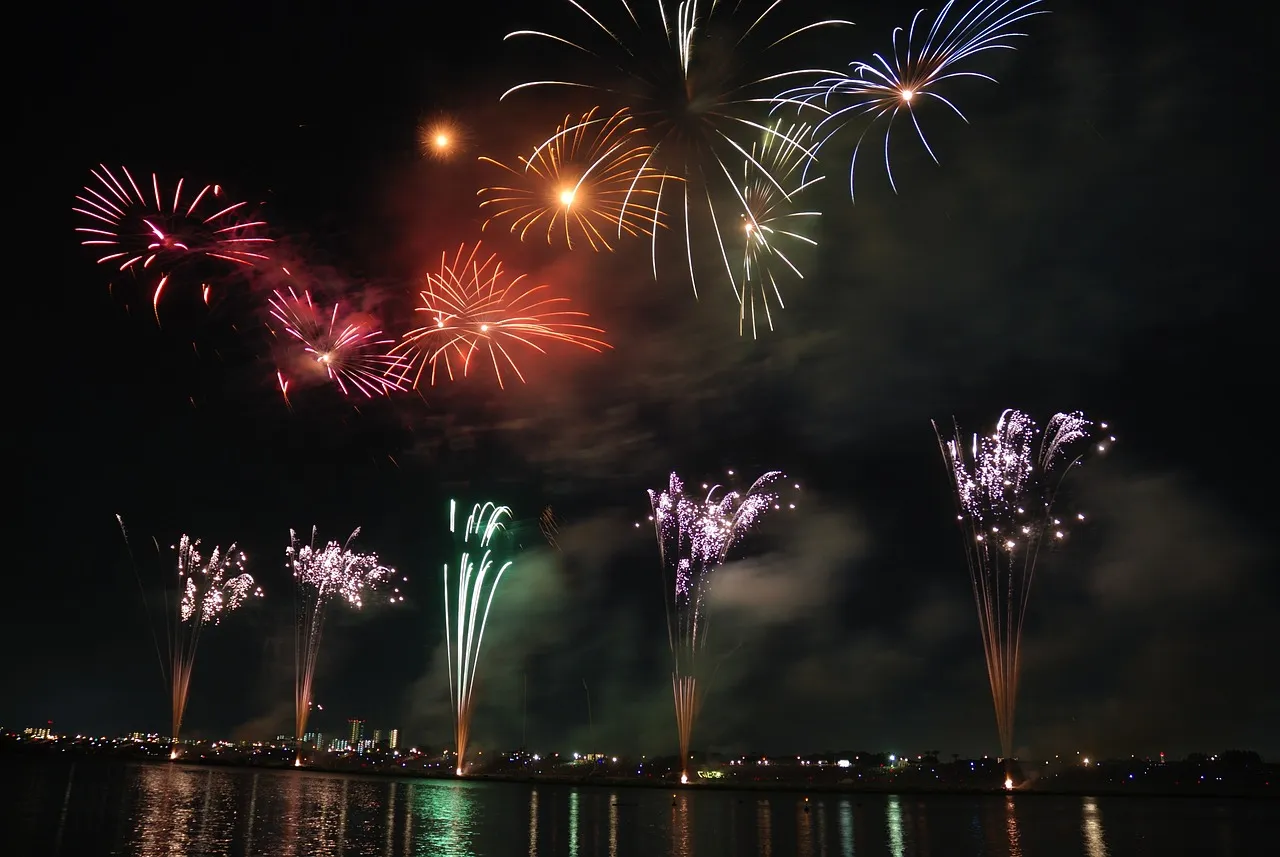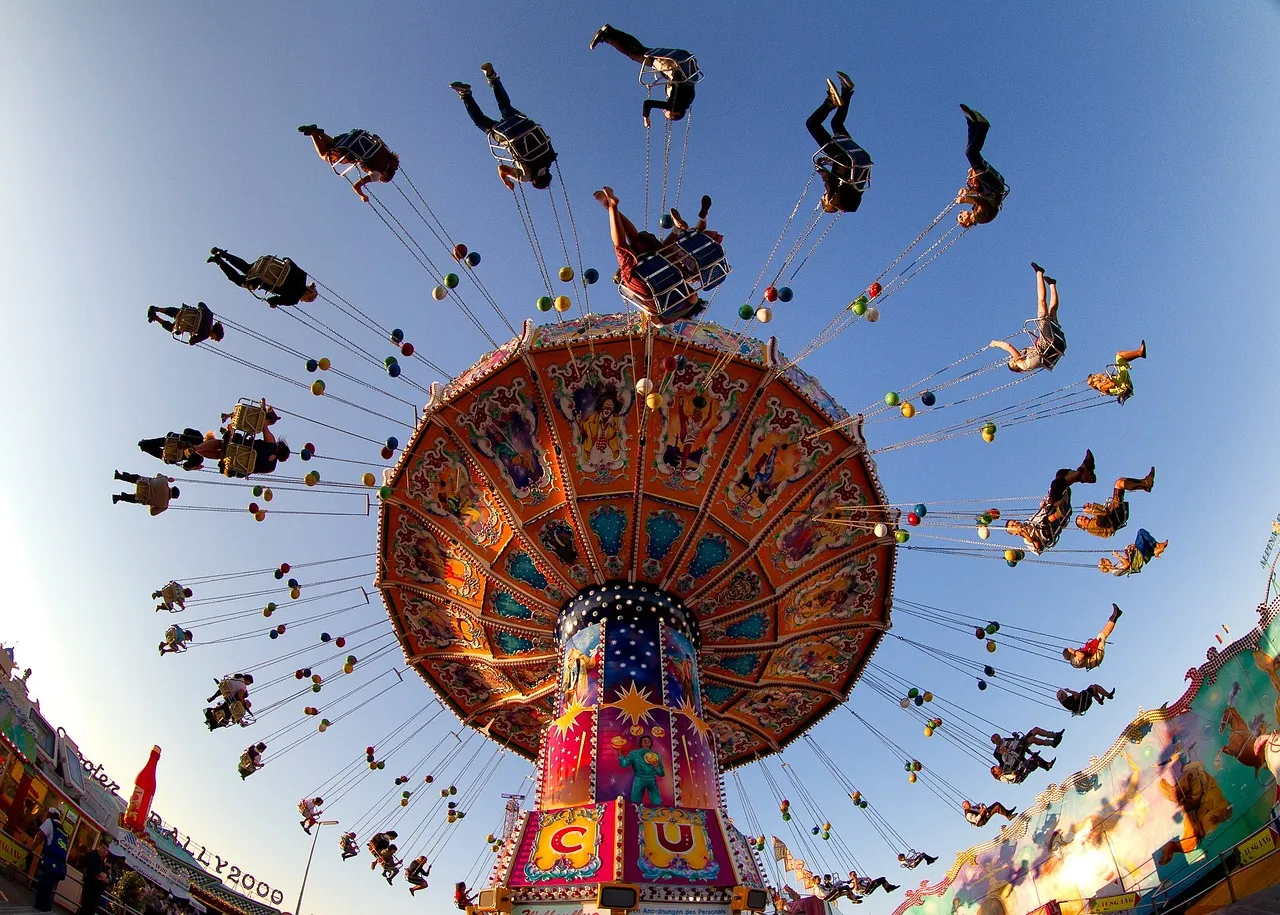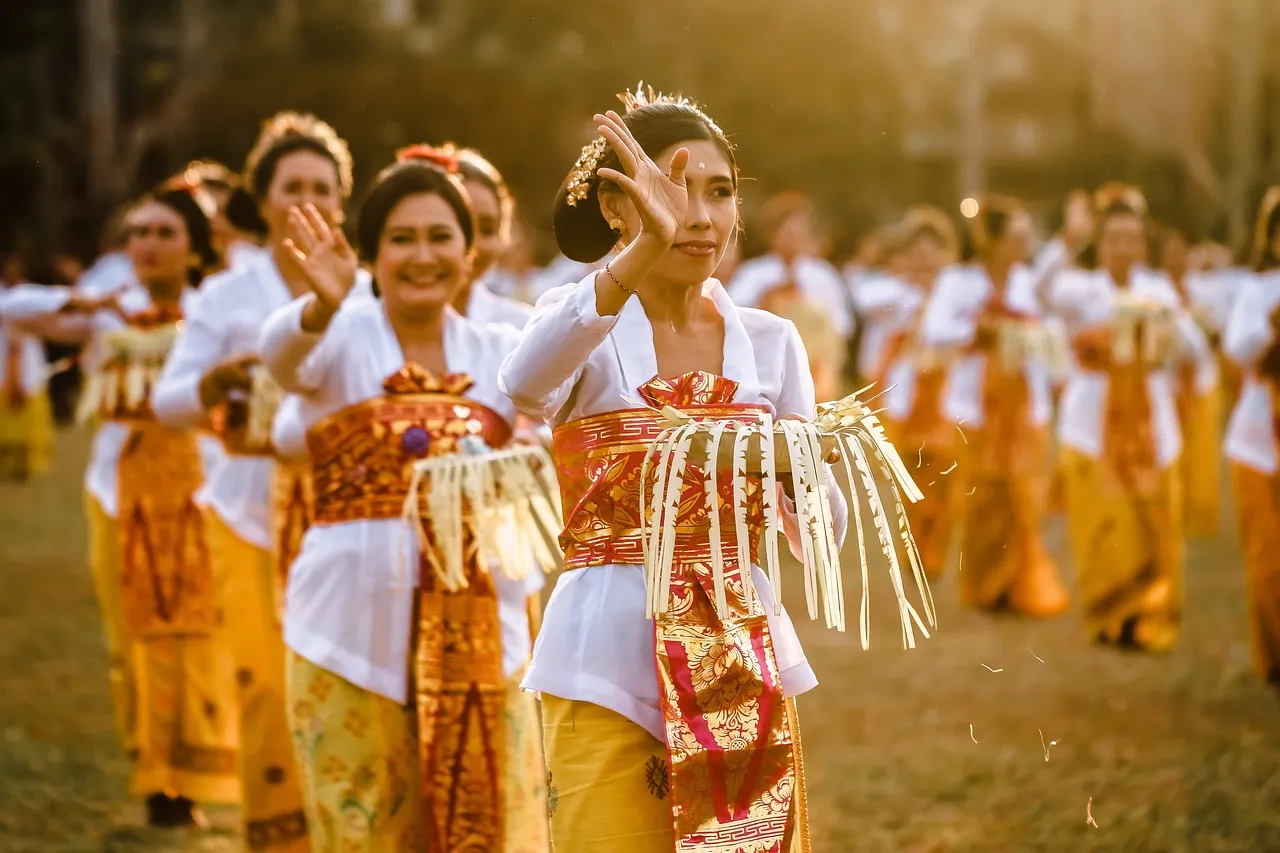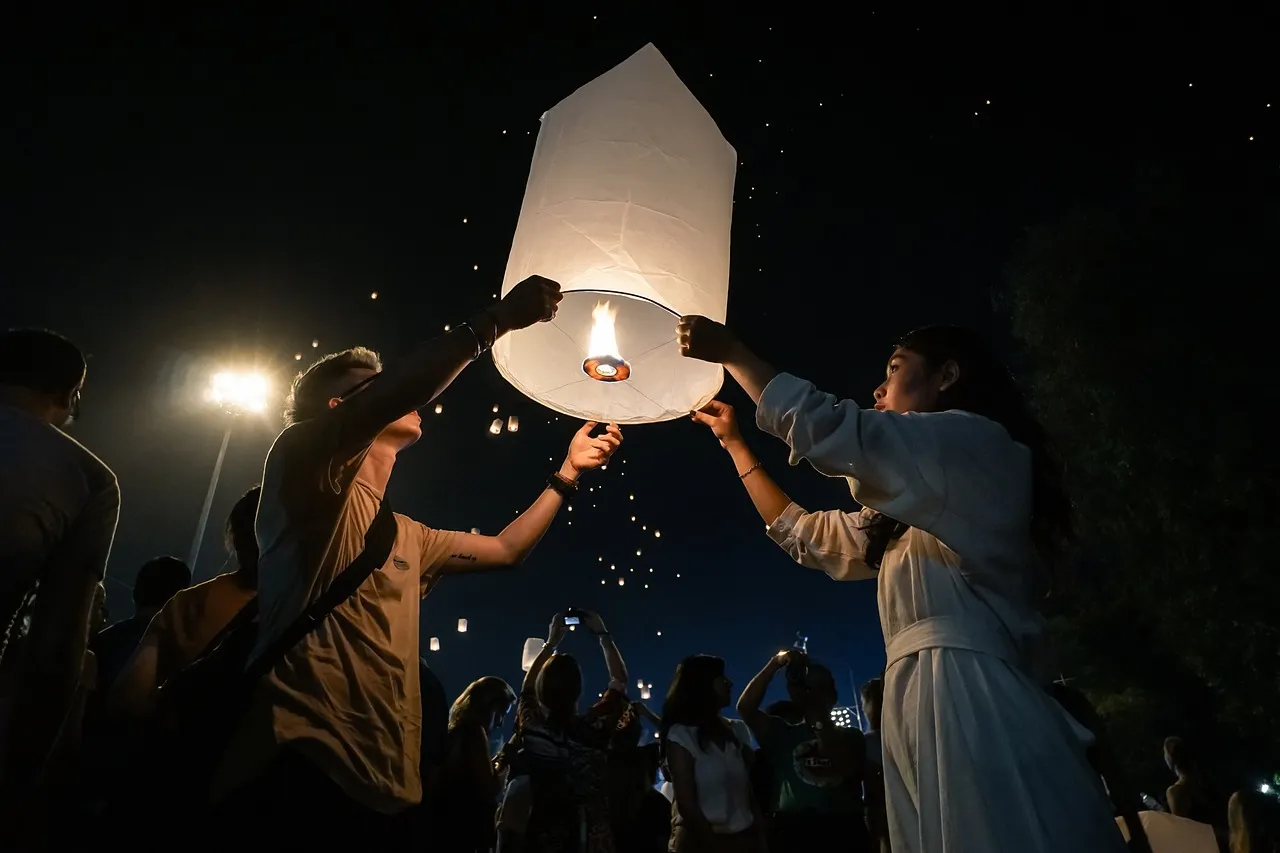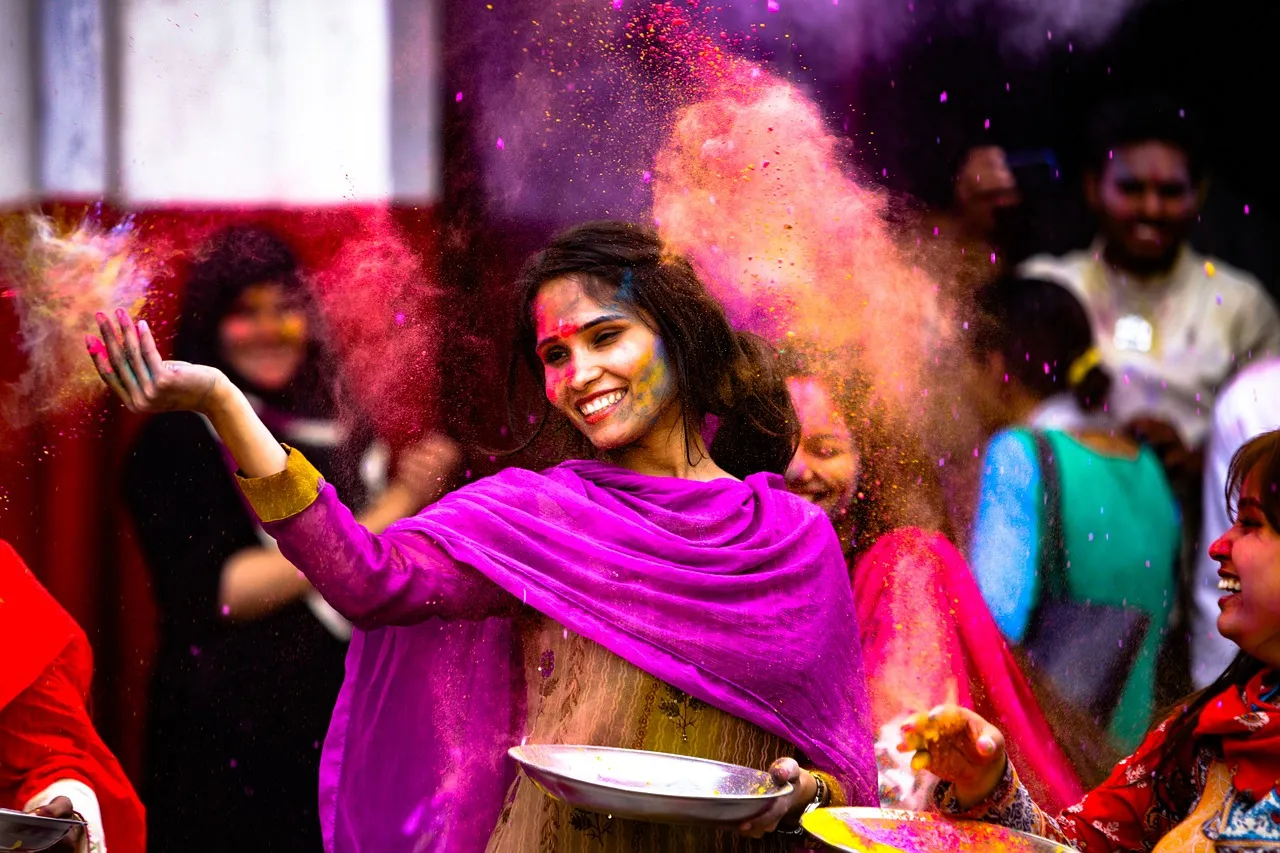Immerse yourself in a kaleidoscope of traditions and celebrations with our definitive guide to Cultural Festivals Around the Globe! From the vibrant colors of Holi in India to the rhythmic beats of Rio Carnival, our article is your passport to a world of cultural richness. Uncover the significance behind each festivity, learn insider tips for an authentic experience, and discover the unique stories that make these festivals unforgettable. Elevate your cultural awareness and join the global celebration!
Cultural Festivals Around the Globe
Rio de Janeiro Carnival, Brazil: A Samba Extravaganza
The Rio de Janeiro Carnival, held annually before Lent, is one of the world’s most iconic and lively cultural festivals. This dazzling celebration transforms the streets of Rio into a spectacle of vibrant colors, rhythmic samba beats, and elaborate costumes. From the glittering parades at the Sambadrome to the energetic street parties, the Rio Carnival is a testament to Brazil’s exuberant spirit and cultural richness.
Holi, India: The Festival of Colors
Holi, the Hindu festival of colors, is a joyous celebration observed across India and in many other parts of the world. Participants engage in exuberant color-throwing festivities, symbolizing the triumph of good over evil and the arrival of spring. The vibrant hues and playful atmosphere make Holi a unique and visually stunning cultural festival that brings people of all backgrounds together in a spirit of unity and joy.
Edinburgh Festival Fringe, Scotland: A Feast of Performing Arts
The Edinburgh Festival Fringe, held annually in August, is the world’s largest arts festival, transforming the Scottish capital into a stage for creativity and innovation. With thousands of performances ranging from theater and comedy to dance and spoken word, the festival attracts artists and audiences from around the globe. The Edinburgh Festival Fringe is a celebration of artistic expression, offering a platform for both established and emerging talents.
Diwali, Various Countries: The Festival of Lights
Diwali, or Deepavali, is a significant Hindu festival celebrated across various countries, including India, Nepal, and communities around the world. Known as the Festival of Lights, Diwali symbolizes the victory of light over darkness and good over evil. The festival is marked by the lighting of lamps, colorful rangoli decorations, and festive meals, creating a warm and joyous atmosphere that transcends cultural boundaries.
Oktoberfest, Germany: A Bavarian Celebration of Beer and Tradition
Oktoberfest, held annually in Munich, Germany, is the world’s largest beer festival and a celebration of Bavarian culture. Running for 16 days from late September to the first weekend in October, Oktoberfest attracts millions of visitors. Beyond the beer tents, the festival features traditional Bavarian music, folk dances, and vibrant parades, offering a unique blend of cultural immersion and revelry.
Cherry Blossom Festival, Japan: Hanami Amidst Nature’s Splendor
The Cherry Blossom Festival, or Hanami, in Japan is a cultural celebration of the fleeting beauty of cherry blossoms. Held in spring, the festival draws locals and tourists alike to parks adorned with delicate pink blossoms. Traditional tea ceremonies, musical performances, and festive picnics under the blooming cherry trees make the Cherry Blossom Festival a serene and culturally significant event.
Carnival of Venice, Italy: Masks, Elegance, and Historical Splendor
The Carnival of Venice, dating back to the 12th century, is a captivating blend of historical elegance and modern revelry. Characterized by elaborate masks, costumes, and grand masquerade balls, the carnival creates a magical atmosphere in the picturesque canals of Venice. This celebration of art, history, and tradition attracts visitors from around the world to partake in the festivities.
Cultural festivals around the globe are vibrant expressions of human creativity, traditions, and the shared joy of celebration. Whether it’s the rhythmic beats of the Rio Carnival, the explosion of colors during Holi, or the historical splendor of the Carnival of Venice, these festivals offer a window into the rich diversity of global cultures. As we embrace the festivities, we also appreciate the universal human desire to come together, celebrate, and cherish the unique expressions of our shared heritage. So, pack your sense of wonder and immerse yourself in the kaleidoscope of cultural festivals that light up cities and communities worldwide.
International cultural festivals calendar
The world is a stage, and each day brings forth a new performance on the global cultural calendar. In this blog post, we’ll embark on a journey across continents, exploring the vibrant tapestry of international cultural festivals that grace the calendar throughout the year. From music and dance to art and culinary delights, these festivals showcase the richness of human expression and the diversity of global cultures.
January – Jaipur Literature Festival, India: A Literary Extravaganza
Kicking off the international cultural festivals calendar is the Jaipur Literature Festival in January. Held in the historic Pink City of Jaipur, India, this festival brings together renowned authors, thinkers, and literary enthusiasts from around the world. Discussions, readings, and cultural performances create a literary haven, making it a must-attend event for those passionate about the written word.
February – Rio Carnival, Brazil: Samba and Spectacle
February sees the streets of Rio de Janeiro come alive with the pulsating rhythms of the world-famous Rio Carnival. This extravagant celebration, held before Lent, is a riot of colors, samba beats, and elaborate costumes. The Sambadrome becomes a stage for samba schools to showcase their creativity, turning Rio into a global party destination.
March – Holi, Various Countries: A Colorful Triumph of Spring
March marks the arrival of spring and the vibrant festival of Holi, celebrated in various countries, including India and Nepal. Known as the Festival of Colors, Holi is a joyous occasion where people come together to play with colored powders, symbolizing the triumph of good over evil. The festival’s exuberant atmosphere and vivid hues make it a cultural spectacle to behold.
April – Cherry Blossom Festival, Japan: Hanami Amidst Nature’s Splendor
April welcomes the Cherry Blossom Festival, or Hanami, in Japan. As cherry blossoms bloom across the country, parks become adorned with delicate pink flowers. The festival includes traditional tea ceremonies, musical performances, and picnics under the blossoming trees, creating a serene and culturally significant celebration of nature’s beauty.
May – Cannes Film Festival, France: A Showcase of Cinematic Excellence
May brings cinephiles and filmmakers to the French Riviera for the prestigious Cannes Film Festival. Renowned for its red carpet glamour and premieres of critically acclaimed films, Cannes is a global stage for cinematic excellence. The festival attracts international stars, directors, and industry professionals, making it a pivotal event in the film industry calendar.
June – Glastonbury Festival, United Kingdom: Music and Arts Extravaganza
June sees the English countryside come alive with the Glastonbury Festival, one of the world’s largest and most diverse music and arts festivals. From iconic headliners to emerging artists, Glastonbury offers a kaleidoscope of musical genres, theater performances, and interactive art installations, creating a vibrant celebration of creativity and culture.
July – Inti Raymi, Peru: Inca Festival of the Sun
In July, the ancient Inca capital of Cusco, Peru, hosts Inti Raymi, the Festival of the Sun. This traditional celebration honors the Inca god Inti with colorful processions, music, and dance. The festival, rooted in Inca history, showcases the rich cultural heritage of Peru and attracts visitors from around the world.
August – Edinburgh Festival Fringe, Scotland: The World’s Largest Arts Festival
August is synonymous with the Edinburgh Festival Fringe, the world’s largest arts festival. Transforming the Scottish capital into a creative hub, the festival features thousands of performances across various genres, including theater, comedy, dance, and music. It is a celebration of artistic expression, attracting both established and emerging talents.
September – Oktoberfest, Germany: Bavarian Beer Extravaganza
As summer transitions to fall, Munich, Germany, hosts Oktoberfest, the world’s largest beer festival. Running for 16 days, Oktoberfest welcomes millions of visitors to indulge in Bavarian traditions, including beer tasting, traditional music, and lively folk dances. The festival’s cultural immersion and festive atmosphere make it a global attraction.
October – Diwali, Various Countries: The Festival of Lights
October brings Diwali, or Deepavali, celebrated by millions across India and in various countries with Indian communities. Known as the Festival of Lights, Diwali symbolizes the victory of light over darkness. The festival includes the lighting of lamps, colorful decorations, and festive feasts, creating a warm and joyous atmosphere.
November – Day of the Dead (Día de los Muertos), Mexico: Honoring Ancestors
November marks Día de los Muertos, or Day of the Dead, in Mexico. This culturally rich celebration honors deceased loved ones with vibrant altars, traditional foods, and lively festivities. Parades, music, and the iconic sugar skull decorations contribute to the unique and heartfelt atmosphere of this Mexican tradition.
December – Chichibu Night Festival, Japan: Illuminating Winter Skies
Closing the international cultural festivals calendar is the Chichibu Night Festival in Japan. Held in December, this winter festival features illuminated floats, traditional performances, and a captivating fireworks display. The festival’s enchanting atmosphere encapsulates the festive spirit of the holiday season.
The international cultural festivals calendar is a testament to the diversity and richness of global cultures. From literary gatherings and film premieres to music extravaganzas and traditional celebrations, each festival offers a unique window into the artistic and cultural tapestry of the world. As you plan your travels, consider immersing yourself in the magic of these festivals, where the world comes together to celebrate the boundless possibilities of human creativity and cultural expression.
Traditional festivals worldwide
Traditional festivals are the heartbeat of cultural heritage, weaving stories of tradition, community, and shared identity. In this blog post, we embark on a journey across continents, exploring the richness and diversity of traditional festivals that continue to thrive and evolve, connecting generations and celebrating the essence of each community’s unique history.
Chinese New Year: The Lunar Celebration of Renewal
Chinese New Year, also known as the Spring Festival, is a vibrant and widely celebrated traditional festival marking the beginning of the lunar new year in China and other East Asian countries. Families come together for reunion dinners, streets are adorned with colorful decorations, and dragon and lion dances fill the air. The festival symbolizes renewal, luck, and the welcoming of prosperity in the coming year.
Navratri, India: A Dance of Devotion
Navratri, meaning “nine nights,” is a traditional Hindu festival celebrated across India. Dedicated to the goddess Durga, Navratri involves colorful and energetic dance forms, such as Garba and Dandiya. The festival represents the triumph of good over evil and is a time for devotion, fasting, and vibrant cultural performances that bring communities together in joyous celebration.
Carnival of Venice, Italy: A Masked Extravaganza
The Carnival of Venice, dating back to the 12th century, is a mesmerizing celebration of art, history, and tradition. Masked revelers don elaborate costumes, and the city’s picturesque canals become a stage for grand masquerade balls and parades. The festival’s origins lie in the celebration of freedom and indulgence before the solemn period of Lent, making it a historical and visually stunning event.
Songkran, Thailand: The Water Festival
Songkran, the Thai New Year, is celebrated with great enthusiasm in mid-April. The festival is renowned for its water fights, symbolizing the cleansing of the past year’s misfortunes and the welcoming of a fresh start. Traditional ceremonies, such as pouring scented water on Buddha statues and seeking blessings from elders, add a spiritual dimension to the exuberant water festivities.
Semana Santa, Spain: Holy Week Processions
Semana Santa, or Holy Week, is a deeply rooted and solemn tradition observed in many Spanish cities. During this week leading up to Easter, elaborate processions featuring religious statues, ornate floats, and hooded penitents wind through the streets. The processions depict the Passion of Christ and attract both devout worshippers and fascinated spectators, creating a unique blend of spirituality and cultural expression.
Obon Festival, Japan: Honoring Ancestors with Dance
Obon is a Japanese Buddhist festival dedicated to honoring ancestors. Families come together to clean and decorate graves, and communities participate in Bon Odori dances. The dances, accompanied by traditional music, celebrate the spirits of the departed and foster a sense of community connection. Lanterns are often lit and floated on rivers as a symbolic gesture to guide spirits back to the afterlife.
Día de los Muertos, Mexico: Celebrating Life Beyond Death
Día de los Muertos, or Day of the Dead, is a colorful and vibrant Mexican tradition that honors deceased loved ones. Families create elaborate altars adorned with photographs, candles, marigolds, and the favorite foods of the departed. The festival is a joyful celebration of life, a time for storytelling, and a reflection on the interconnectedness of generations through cultural practices.
Boryeong Mud Festival, South Korea: A Playful Tradition
The Boryeong Mud Festival in South Korea is a modern celebration with traditional roots, centered around the therapeutic benefits of mud from the Boryeong mud flats. The festival attracts millions of visitors who engage in mud wrestling, mudslides, and various activities. The playful atmosphere and connection to nature make it a unique and lively celebration.
Midsummer, Sweden: Dancing Around the Maypole
Midsummer, celebrated in Sweden around the summer solstice, is a joyous festival that welcomes the longest day of the year. Communities gather to dance around the maypole, adorned with flowers and ribbons, symbolizing fertility and the bounty of nature. Midsummer celebrations often include feasting, traditional songs, and a strong sense of connection to the natural world.
Ganesh Chaturthi, India: Honoring the Elephant-headed Deity
Ganesh Chaturthi is an important Hindu festival dedicated to Lord Ganesha, the remover of obstacles. Celebrated in India, especially in Maharashtra, the festival involves the creation of elaborate clay idols of Ganesha, which are then immersed in water. The vibrant processions, devotional songs, and communal celebrations highlight the cultural significance of this beloved deity.
Albuquerque International Balloon Fiesta, USA: A Skyward Celebration
While not a traditional festival in the conventional sense, the Albuquerque International Balloon Fiesta in the United States is a visually spectacular celebration that draws on the tradition of hot air ballooning. Hundreds of colorful balloons take to the skies, creating a mesmerizing display against the backdrop of the New Mexico landscape. The festival combines modern innovation with the joyous spirit of communal celebration.
Traditional festivals worldwide are a testament to the enduring power of cultural heritage and the human need for connection, celebration, and ritual. From the lively streets of Rio de Janeiro during Carnival to the tranquil celebrations of Midsummer in Sweden, each festival tells a story of identity, history, and the collective spirit of communities around the globe. As we celebrate these traditions, we honor the diversity that makes our world a rich and culturally vibrant tapestry.
How to plan for cultural events
Cultural events bring communities together, fostering a sense of unity and celebration. Whether you’re organizing a festival, art exhibition, or cultural performance, meticulous planning is key to ensuring a seamless and memorable experience for participants and attendees. In this blog post, we’ll delve into the essential steps on how to plan for cultural events, from conceptualization to execution.
Define Your Objectives and Theme
Every successful cultural event starts with a clear vision. Begin by defining the objectives of your event. What message do you want to convey, and what experience do you want attendees to have? Establish a theme that aligns with your objectives, providing a cohesive and engaging narrative for the event.
Understand Your Audience
Knowing your audience is crucial for tailoring the event to their interests and preferences. Conduct research to understand the demographics and cultural inclinations of your target audience. Consider their expectations, and use this information to shape the content, activities, and overall ambiance of the event.
Create a Detailed Budget
Financial planning is a cornerstone of successful event management. Create a detailed budget that encompasses all aspects of the event, including venue costs, permits, talent fees, marketing expenses, and logistical requirements. Allocate funds strategically, ensuring that each aspect of the event receives adequate resources.
Select an Appropriate Venue
The venue sets the stage for the cultural experience. Choose a location that aligns with your event’s theme and can accommodate the anticipated number of attendees comfortably. Consider the accessibility of the venue, available amenities, and any cultural significance associated with the location.
Secure Necessary Permits and Permissions
Cultural events often require permits and permissions from local authorities. Research and obtain the necessary licenses, permits, and clearances well in advance to avoid any last-minute hiccups. This may include permissions for outdoor events, food vendors, and amplified music, depending on the nature of your event.
Curate a Diverse Program
Craft a program that showcases the diversity of cultural elements you aim to highlight. This may involve coordinating performances, exhibitions, workshops, and interactive activities. Ensure a balance between traditional and contemporary elements to appeal to a broad audience.
Engage with Local Artists and Performers
To truly immerse attendees in the cultural experience, engage local artists and performers who can authentically represent the cultural heritage you’re celebrating. This not only supports the local arts community but also adds an authentic touch to your event.
Develop a Strategic Marketing Plan
Effective marketing is essential for attracting attendees and creating buzz around your cultural event. Utilize a mix of online and offline channels, including social media, email campaigns, local press, and community partnerships. Leverage engaging visuals and storytelling to convey the unique aspects of your event.
Facilitate Audience Interaction
Encourage active participation and engagement among attendees. Create spaces for dialogue, interactive exhibits, and hands-on activities that allow participants to connect with the cultural elements on a personal level. Consider incorporating technology, such as event apps or interactive displays, to enhance the overall experience.
Provide Adequate Logistics and Facilities
Smooth logistics contribute significantly to the overall success of cultural events. Ensure that you have the necessary infrastructure, such as stages, seating arrangements, and restroom facilities. Coordinate transportation options for attendees, and have a contingency plan for unforeseen circumstances.
Implement Sustainable Practices
Promote environmental consciousness by incorporating sustainable practices into your event planning. Consider eco-friendly options for materials, waste management, and energy usage. Communicate your commitment to sustainability to align with the growing emphasis on responsible event management.
Evaluate and Gather Feedback
After the event concludes, conduct a thorough evaluation to assess its success and areas for improvement. Gather feedback from attendees, participants, and stakeholders to understand what worked well and identify opportunities for enhancement. Use this information to inform future cultural events and refine your planning strategies.
Planning cultural events is a dynamic process that requires careful consideration, creativity, and attention to detail. By defining your objectives, understanding your audience, and engaging with the local community, you can create an event that resonates with attendees and leaves a lasting cultural impact. As you navigate the planning process, remember that the success of a cultural event lies in the seamless integration of diverse elements, fostering a sense of connection and celebration within the community.
Festivals celebrating diversity
Festivals celebrating diversity are vibrant tapestries that weave together the rich threads of cultures, traditions, and identities. These events serve as powerful platforms for fostering understanding, promoting unity, and celebrating the unique facets that make each community special. In this blog post, we’ll explore a selection of festivals from around the world that exemplify the spirit of inclusivity and cultural harmony.
Carnaval de Barranquilla, Colombia: A Kaleidoscope of Cultures
Carnaval de Barranquilla stands as one of the largest and most colorful carnivals in the world, celebrated with exuberance in Colombia. This carnival is a dynamic fusion of African, Indigenous, and European influences, reflecting the diverse cultural heritage of the region. From vibrant parades to traditional music and dance, Carnaval de Barranquilla showcases the unity found in the diversity of Colombian cultures.
Notting Hill Carnival, United Kingdom: London’s Carnival Extravaganza
The Notting Hill Carnival in London is a testament to the city’s cultural diversity. Originating in the Afro-Caribbean community, the carnival has evolved into a melting pot of cultures, celebrating the vibrant traditions of London’s various communities. Colorful costumes, lively music, and delicious cuisine contribute to the festival’s atmosphere of inclusivity, welcoming people from all walks of life.
Festival of Lights (Diwali), Worldwide: Illuminating Diversity
Diwali, known as the Festival of Lights, is celebrated by millions of people across the world, particularly in India and the Indian diaspora. The festival symbolizes the triumph of light over darkness and good over evil. Diwali celebrations include the lighting of lamps, colorful decorations, and the sharing of festive meals, creating a joyous atmosphere that transcends cultural and geographical boundaries.
Mardi Gras, New Orleans, USA: A Global Fusion of Traditions
While Mardi Gras has its roots in Christian traditions, the celebration in New Orleans has evolved into a grand display of cultural diversity. The city’s unique history and multicultural influences are evident in the lively parades, eclectic music, and elaborate costumes. Mardi Gras in New Orleans is a celebration that brings together people from various backgrounds, emphasizing the city’s cultural richness.
Songkran, Thailand: Water Festival of Unity
Songkran, the Thai New Year, is a celebration that transcends religious and regional differences, uniting people across Thailand in a shared experience. The festival is renowned for its water fights, symbolizing the cleansing of the past year’s misfortunes and the welcoming of the new year with a fresh start. Songkran emphasizes the importance of water as a unifying element in Thai culture.
Harmony Day, Australia: Embracing Cultural Diversity
Harmony Day in Australia is a national celebration that promotes inclusivity and diversity. Observed on March 21st, the day encourages Australians to embrace cultural differences and foster a sense of belonging for everyone. The event celebrates the nation’s cultural diversity through various activities, events, and community initiatives that highlight the contributions of different ethnic backgrounds.
Rio de Janeiro Carnival, Brazil: Samba Beats of Unity
The Rio de Janeiro Carnival is not just a spectacular showcase of music, dance, and vibrant costumes; it is also a celebration of Brazil’s diverse cultural influences. With roots in African, Indigenous, and European traditions, the carnival unites people from various backgrounds to revel in the infectious rhythms of samba. The streets come alive with a fusion of cultures, emphasizing Brazil’s rich cultural mosaic.
Feria de Abril, Spain: Andalusian Fiesta of Diversity
Feria de Abril, held in Seville, Spain, is a lively celebration that encapsulates the spirit of Andalusian culture. The festival blends traditional flamenco music and dance with the vibrancy of Spanish folklore. With its colorful casetas (decorated tents), festive attire, and diverse program of events, Feria de Abril exemplifies the unity found in the diversity of Spanish regional traditions.
Chinese New Year, Worldwide: A Global Celebration of Spring
Chinese New Year, or the Spring Festival, is celebrated by millions of people around the world, transcending borders and cultural differences. The festival marks the beginning of the lunar new year and is characterized by colorful parades, dragon and lion dances, and vibrant displays of lanterns. Chinese communities worldwide come together to celebrate their cultural heritage and welcome the new year with joy and unity.
Bali Arts Festival, Indonesia: Showcasing Indonesia’s Diversity
The Bali Arts Festival is an annual event that showcases the diverse cultural heritage of Indonesia. Traditional music, dance, and crafts from various regions of the archipelago take center stage during the month-long festival. The event serves as a platform for communities to share and celebrate their unique traditions, fostering a sense of national unity.
Festivals celebrating diversity are more than just occasions for revelry; they are powerful expressions of unity in the face of cultural differences. From the rhythmic beats of samba in Rio de Janeiro to the illuminated streets during Diwali, these festivals exemplify the beauty of cultural harmony. As we celebrate the richness of global cultures through these diverse festivals, we recognize the universal human desire to come together, appreciate differences, and revel in the shared tapestry of our collective heritage.
Cultural festival travel tips
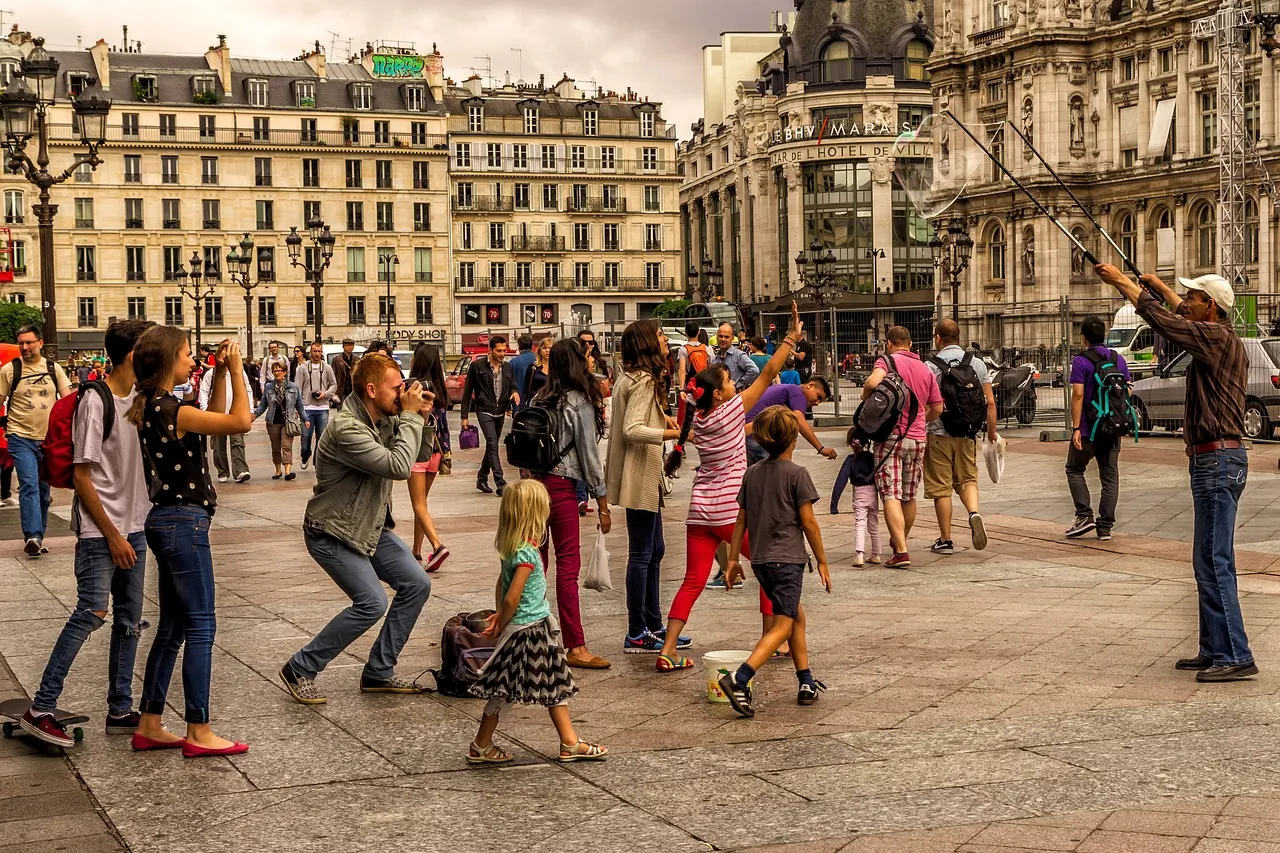
Embarking on a journey to cultural festivals offers a unique opportunity to immerse yourself in the vibrant hues of diverse traditions, artistic expressions, and communal celebrations. To ensure your cultural festival travel is not only exciting but also enriching, this blog post provides a comprehensive guide with essential tips for a seamless and memorable experience.
Research and Understand the Festival
Before setting out, delve into the specifics of the cultural festival you plan to attend. Understand the significance, traditions, and schedule of events. Familiarize yourself with any cultural customs or etiquettes to show respect for the local traditions and ensure a positive experience.
Choose the Right Timing
Cultural festivals often have specific dates tied to historical or seasonal events. Choose your travel dates wisely to coincide with the festival’s peak days. Be mindful of local holidays or peak tourist seasons that may impact your overall experience. Planning your visit during the festival’s most vibrant days ensures you capture the true essence of the celebration.
Book Accommodations in Advance
Securing accommodations well in advance is crucial, especially during popular cultural festivals that attract a large influx of visitors. Opt for accommodations within close proximity to the festival venue to ease travel logistics. Consider booking through reputable platforms and read reviews to ensure a comfortable stay.
Pack Accordingly
Your packing list should reflect the specific requirements of the cultural festival. In addition to essentials like clothing and toiletries, consider packing culturally appropriate attire, especially if the festival has traditional dress codes. Bring a comfortable pair of shoes for exploring festival grounds and, if applicable, a small backpack for essentials during the day.
Stay Hydrated and Energized
Cultural festivals often involve extensive walking, exploring, and partaking in various activities. Stay hydrated by carrying a reusable water bottle, and consider bringing energy snacks to keep you fueled throughout the day. Familiarize yourself with the local cuisine, and indulge in the diverse culinary offerings the festival has to offer.
Respect Local Customs and Traditions
Cultural festivals are rooted in local customs and traditions, and showing respect is paramount. Observe and adhere to any cultural norms, dress modestly if required, and be mindful of religious practices. Engage with locals respectfully, ask for permission before taking photographs, and seek to understand and appreciate the cultural significance of the festival.
Learn Basic Local Phrases
Learning a few basic phrases in the local language can go a long way in enhancing your cultural festival experience. Greetings, expressions of gratitude, and polite phrases will be appreciated by locals and can facilitate smoother interactions. Embracing the local language shows a genuine interest in the culture and fosters a more immersive experience.
Secure Tickets and Passes in Advance
Many cultural festivals offer ticketed events or require passes for entry. To avoid disappointment, secure your tickets or passes well in advance. Check official festival websites for information on ticket prices, purchase options, and any exclusive events or performances that may require separate passes.
Have a Flexible Itinerary
While it’s essential to have a general itinerary, be open to spontaneity and unexpected discoveries. Cultural festivals are often filled with impromptu performances, hidden gems, and unique experiences that may not be on your initial agenda. Allow for flexibility in your schedule to fully embrace the unexpected.
Respect the Environment
Cultural festivals are often held in picturesque locations with natural beauty. Show respect for the environment by disposing of waste responsibly, following designated pathways, and minimizing your ecological footprint. Consider bringing a reusable bag for any festival souvenirs and dispose of waste in designated recycling bins.
Stay Informed about Local Transportation
Familiarize yourself with local transportation options to navigate between your accommodations and the festival grounds. Whether it’s public transportation, rideshares, or festival shuttles, understanding the available options will contribute to a smoother travel experience. Plan your routes in advance, and consider purchasing transportation passes if available.
Capture the Moments
Preserve the memories of your cultural festival experience by capturing photographs and videos. Ensure your camera or smartphone is fully charged, and bring additional memory cards or storage. Capture not only the performances but also the ambiance, interactions with locals, and the unique cultural elements that make the festival special.
Embarking on a cultural festival journey is a thrilling adventure filled with opportunities for discovery, connection, and celebration. By incorporating these travel tips into your plans, you can ensure a seamless and enriching experience that allows you to fully immerse yourself in the beauty of diverse traditions. Embrace the vibrancy of cultural festivals, connect with local communities, and create memories that will resonate with you long after the festival concludes.
